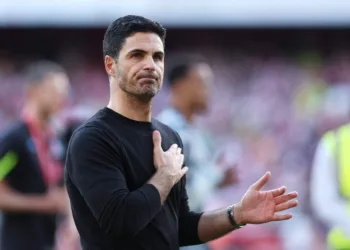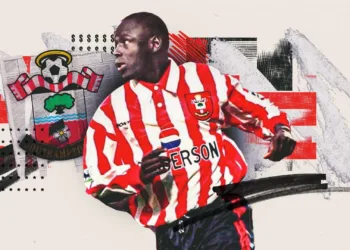After 13 long years of foreign leadership, the Indian football team has returned to its roots with Khalid Jamil’s appointment as head coach in August 2025. This historic decision marks a significant shift in Indian football’s approach, as the All India Football Federation (AIFF) places faith in homegrown coaching talent after decades of relying on international expertise. The last Indian to hold this prestigious position was Savio Medeira, who coached the national team from October 2011 to May 2012.
Table of Contents
The 13-Year Gap: Why It Mattered
The timing of Jamil’s appointment couldn’t be more crucial, as the Indian football team currently sits at 133rd in the FIFA rankings – its lowest position in nine years. This decline has sparked widespread debate about the direction of Indian football and the need for indigenous leadership that understands the local football landscape intimately.
Legendary striker IM Vijayan, who chairs the AIFF Technical Committee, strongly recommended Jamil, noting that India had much higher FIFA rankings under previous Indian coaches like Sukhwinder Singh and Syed Nayeemuddin. This sentiment reflects a growing belief that Indian coaches deserve more opportunities to prove themselves at the highest level.
Savio Medeira: The Last Indian Standard-Bearer
Savio Medeira’s tenure as India’s head coach was brief but memorable. Born on March 20, 1965, in Margao, he spent his entire 17-year playing career with Salgaocar FC, winning two Rover Cups, the Federation Cup, and the National Football League.

Medeira’s Coaching Journey
After retiring as a player, Medeira transitioned into coaching, eventually becoming assistant coach to Bob Houghton on the Indian national team. During this period, India won two Nehru Cup titles and the 2008 AFC Challenge Cup, qualifying for the 2011 AFC Asian Cup after 27 years.
When Medeira was appointed head coach in October 2011, his first major challenge was leading India in the 2011 SAFF Championship. Under his leadership, the Blue Tigers triumphed in the tournament, defeating Afghanistan 4-0 in the final – his biggest success during the brief spell.
The Challenges That Ended an Era
Despite early success, Medeira’s tenure faced significant challenges. India suffered a heavy 0-4 defeat to Bayern Munich in a friendly, followed by poor results against Oman and Azerbaijan. The real blow came during the 2012 AFC Challenge Cup, where India lost all three group-stage matches.
Under Medeira’s leadership, India played 15 games, winning 5, drawing 2, and losing 8. When his contract expired in May 2012, he was not retained, ending more than a decade of Indian management at the national level.
Khalid Jamil: The New Hope
Khalid Jamil’s appointment represents a carefully considered choice by the AIFF. The 48-year-old coach brings extensive domestic experience, having managed several top-tier Indian clubs including Mohun Bagan, East Bengal, Aizawl FC, NorthEast United, and Jamshedpur FC.
The Aizawl Miracle
Jamil’s most celebrated achievement came with Aizawl FC in the 2016-17 I-League season. Against all odds, he guided the club to the I-League title, becoming the first Indian coach ever to lift India’s top domestic trophy. His side lost only three times all season and pipped Mohun Bagan by a single point.

This triumph was achieved with a minimal budget of just Rs 2 crore, proving Jamil’s ability to maximize resources and create competitive teams regardless of financial constraints.
Breaking ISL Barriers
In the Indian Super League, Jamil made history with NorthEast United FC in the 2020-21 season, guiding them to their first playoff appearance – an achievement unmatched by any Indian coach in ISL history at the time. He became the first Indian permanent head coach of an ISL club when appointed to lead NorthEast United for the 2021-22 season.
Comparative Analysis: Then vs Now
| Aspect | Savio Medeira (2011-2012) | Khalid Jamil (2025-Present) |
|---|---|---|
| Previous Experience | Assistant coach to foreign managers | Extensive head coaching in I-League & ISL |
| Major Achievement Before Appointment | Durand Cup with Salgaocar FC (2003) | I-League title with Aizawl FC (2017) |
| Team’s FIFA Ranking at Appointment | ~147-163 | 133 (lowest in 9 years) |
| First Assignment | 2011 SAFF Championship (Won) | CAFA Nations Cup (August 2025) |
| Coaching Philosophy | Experienced as assistant, new as head coach | Proven track record with underdog teams |
| Support System | Limited Indian coaching development | Enhanced coach education programs |
The Current Challenge
Jamil inherits a team in crisis. The Indian football team’s recent performance has been disappointing, with just one win in the last eight matches under previous coach Manolo Marquez. The team’s 133rd FIFA ranking represents its worst position since December 2016.
Among Asian Football Confederation (AFC) members, India is currently ranked 24th out of 47 member associations, highlighting the significant work ahead for the new coach.
What Makes This Appointment Different
Institutional Support
Unlike Medeira’s era, current AIFF Head of Coach Education Savio Medeira himself emphasizes that Indian coaches need regular competition and mentoring. “Our coaches at this level need regular competition, regular mentoring,” he stressed in recent interactions.
Modern Coaching Credentials
Jamil holds an AFC Pro License Diploma, representing the highest coaching qualification in Asian football. This credential demonstrates his commitment to modern coaching methodologies and tactical understanding.
Proven Adaptability
Jamil’s coaching philosophy focuses on defensive organization, work ethic, and rapid counters. He emphasizes well-structured backlines, industrious midfielders, and width from wingers, often deploying a target-man up front – tactics that have proven successful across different club environments.
The Road Ahead
Jamil’s immediate challenge is the CAFA Nations Cup, where India will face hosts Tajikistan on August 29, followed by matches against defending champions Iran and Afghanistan. This tournament serves as a crucial warm-up ahead of India’s AFC Asian Cup Qualifiers against Singapore in October.
With India currently bottom of their AFC Asian Cup qualifying group with just one point from two games, Jamil’s task extends beyond short-term results to rebuilding confidence and establishing a sustainable playing philosophy.
Historical Context and Future Implications
The appointment of Khalid Jamil represents more than just a coaching change – it signifies a philosophical shift toward nurturing indigenous talent. As former India players and current executive committee members supported giving opportunities to Indian coaches, the decision reflects broader recognition that local coaches understand the unique challenges and opportunities within Indian football.

This move aligns with successful models in other sports where Indian leadership has yielded positive results. The emphasis on developing domestic coaching talent could inspire a new generation of Indian tacticians and create sustainable pathways for football development at all levels.
Performance Comparison Table
| Metric | Savio Medeira Era | Current Challenges for Jamil |
|---|---|---|
| Matches Played | 15 | To be determined |
| Win Rate | 33.3% (5 wins) | Starting fresh |
| Major Tournament Success | SAFF Championship 2011 | Immediate target: CAFA Nations Cup |
| FIFA Ranking Movement | Declined during tenure | Starting at 9-year low (133rd) |
| Key Players | Sunil Chhetri, Subrata Paul, Jeje | New generation + returning Chhetri |
| Infrastructure Support | Limited | Enhanced with modern coaching programs |
Read More: Everton on Verge of £29M Breakthrough: Kiernan Dewsbury-Hall Deal Nears Completion
FAQs
Who was the last Indian coach before Khalid Jamil?
Savio Medeira was the last Indian to coach the national team, serving from October 2011 to May 2012. He led India to victory in the 2011 SAFF Championship, defeating Afghanistan 4-0 in the final.
What is Khalid Jamil’s biggest coaching achievement?
Jamil’s most celebrated achievement is leading Aizawl FC to the 2016-17 I-League title, becoming the first Indian coach ever to win India’s top domestic football trophy. The team achieved this with a minimal budget, losing only three matches all season.
Why did it take 13 years to appoint another Indian coach?
The gap reflects Indian football’s reliance on foreign expertise during a period of infrastructure development and professionalization. However, recent emphasis on coach education and Jamil’s proven domestic success convinced the AIFF to return to Indian leadership.
What challenges does Khalid Jamil face as the new coach?
Jamil inherits a team at its lowest FIFA ranking (133rd) in nine years, with poor recent results including losses to Thailand and Hong Kong. The team is currently bottom of their AFC Asian Cup qualifying group with just one point from two games.
How does the current Indian football team compare to Medeira’s era?
While both coaches inherited challenging situations, Jamil benefits from improved infrastructure, better coach education programs, and enhanced domestic league systems. However, the current FIFA ranking crisis presents unique pressures that Medeira didn’t face initially.








